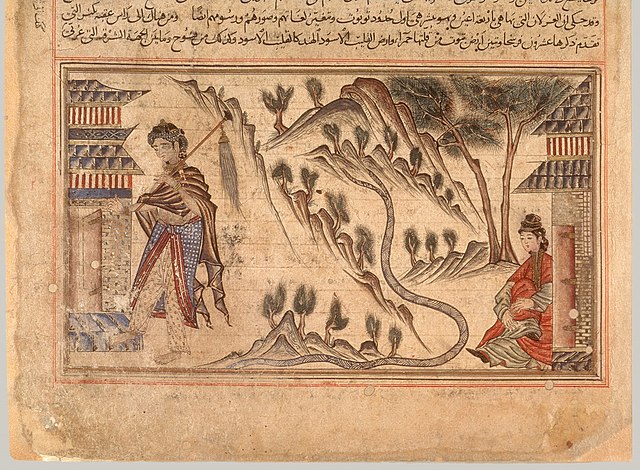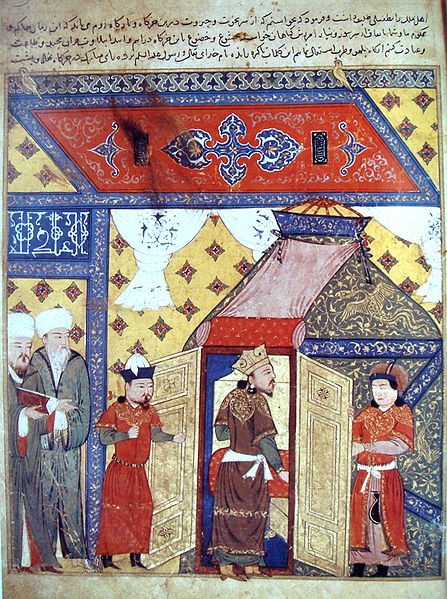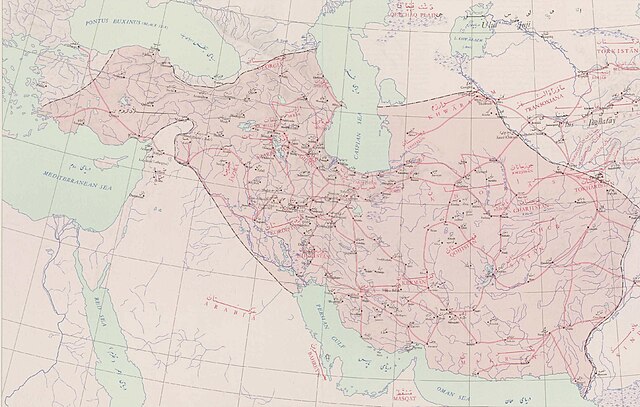Jāmiʿ al-tawārīkh is a work of literature and history, produced in the Mongol Ilkhanate. Written by Rashid al-Din Hamadani at the start of the 14th century, the breadth of coverage of the work has caused it to be called "the first world history". It was in three volumes and published in Arabic and Persian versions.
Mongol soldiers, in Jami al-tawarikh by Rashid-al-Din Hamadani, BnF. MS. Supplément Persan 1113. 1430–1434 AD.
Mountains between India and China, Khalili Collection of Islamic Art
Equestrian battle in front of a city gate. Rashid ad-Din, Jami al-Tawarikh, Diez Albums, 1300–1325
"The conversion of Ghazan Khan to Islam", Timurid manuscript, Bibliothèque nationale de France, Supplément persan 1113, c. 1430
The Ilkhanate or Il-khanate, ruled by the Il-Khans or Ilkhanids, and known to the Mongols as Hülegü Ulus, was a Mongol khanate established from the southwestern sector of the Mongol Empire. The Ilkhanid realm was officially known as the Land of Iran or simply Iran. It was established after Hülegü, the son of Tolui and grandson of Genghis Khan, inherited the West Asian part of the Mongol Empire after his brother Möngke Khan died in 1259.
The Ilkhanate under Ghazan
Ilkhanid depiction of mounted warriors pursuing enemies, from Rashid al-Din's Jami' al-tawarikh, early 14th century
Hulagu Khan, founder of the Ilkhanate, with his Christian queen Doquz Khatun
A Mongol horse archer of the 13th century








